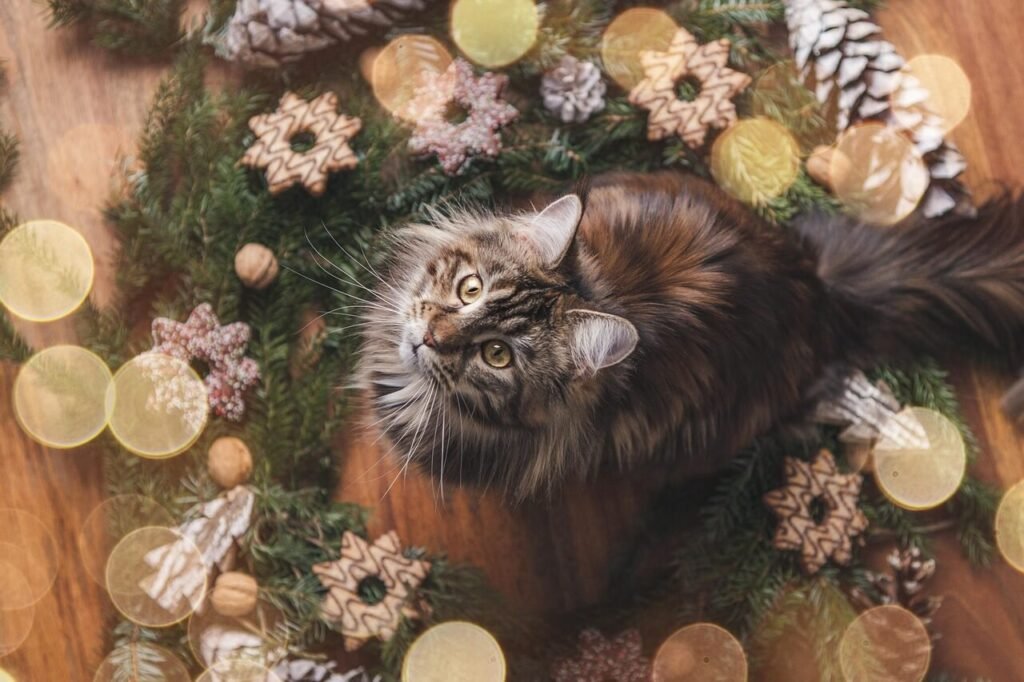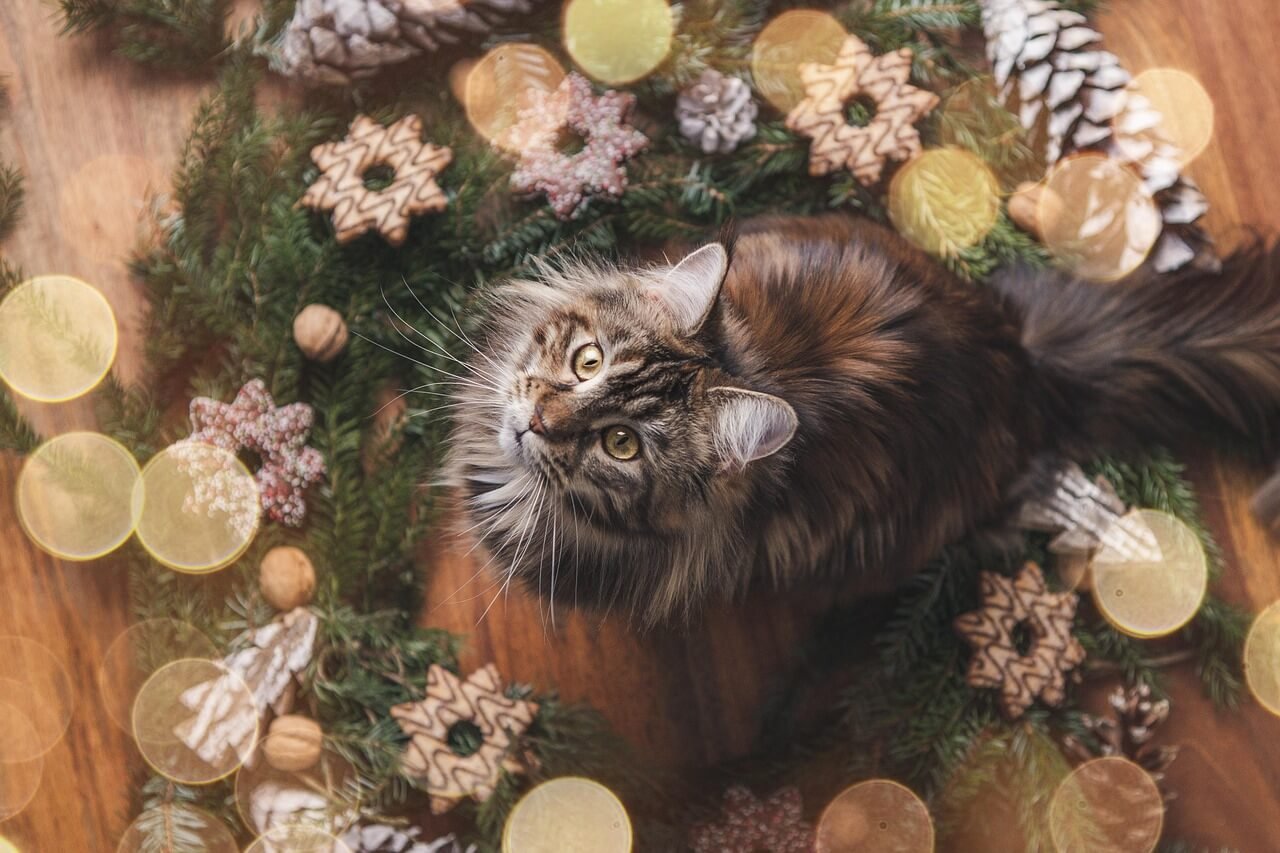Maine Coon Cat Care: A Guide to Keeping Your Gentle Giant Happy and Healthy
The Maine Coon is often referred to as the “gentle giant” of the cat world, and for good reason. With their large size, tufted ears, and luxurious coats, these majestic felines are not only stunning but also incredibly affectionate and intelligent companions. However, caring for a Maine Coon requires more than just admiration—it involves understanding their unique needs to ensure they thrive in your home. From grooming their thick fur to providing ample space for their playful antics, proper Maine Coon cat care is essential for their well-being. In this guide, we’ll explore everything you need to know to keep your Maine Coon happy, healthy, and living their best life.
A Fluffy Coat Needs TLC: Essential Grooming Tips for Maine Coons
One of the most striking features of a Maine Coon is their long, silky coat, which requires regular maintenance to stay healthy and tangle-free. Without proper grooming, their fur can become matted, leading to discomfort and skin issues. Here’s how to keep your Maine Coon’s coat in top condition:
Daily Brushing :
Use a wide-toothed comb or slicker brush to remove loose hair and prevent mats.Bathing Every Few Months :
While Maine Coons are naturally clean, occasional baths help manage oils and dirt buildup.Check Their Ears Weekly :
Their large, tufted ears can trap debris; gently clean them with a damp cloth or vet-approved solution.Trim Their Nails Regularly :
Overgrown nails can cause pain or snag on furniture; trim them every two weeks.Monitor Dental Health :
Brush their teeth weekly with feline toothpaste to prevent gum disease and bad breath.
Consistent grooming not only keeps your Maine Coon looking fabulous but also strengthens your bond through positive interactions. Plus, it helps minimize shedding around your home!
Fueling the Gentle Giant: Proper Nutrition for Maine Coons
Maine Coons are one of the largest domesticated cat breeds, and their dietary needs reflect their size and energy levels. Providing balanced nutrition is crucial for supporting their growth, muscle development, and overall health. Here’s what you need to know about feeding your Maine Coon:
High-Quality Protein :
Choose cat food rich in animal-based proteins to support lean muscle mass.Controlled Portions :
Maine Coons are prone to obesity; measure meals to avoid overfeeding.Age-Specific Diets :
Kittens, adults, and seniors have different nutritional requirements—adjust accordingly.Hydration Is Key :
Encourage water intake by offering wet food or investing in a cat water fountain.Avoid Harmful Foods :
Never feed your Maine Coon toxic foods like chocolate, onions, or garlic.
Proper nutrition ensures your Maine Coon stays energetic and maintains a healthy weight. Always consult your veterinarian before making significant changes to their diet.
Check this guide 👉Norwegian Forest Cat vs Maine Coon: Best 7 Expert Tips!
Check this guide 👉How Much Does a Maine Coon Cat Cost? Best 7 Expert Tips!
Check this guide 👉Colors of Maine Coon Cats: Best 7 Expert Tips!

Grooming Essentials | Nutritional Tips |
|---|---|
Daily brushing for coat care | High-quality protein-rich food |
Occasional baths to reduce odors | Controlled portions to prevent obesity |
Weekly ear cleaning | Hydration-focused diets |
Nail trimming every two weeks | Age-specific formulas for all life stages |
Dental hygiene maintenance | Avoidance of harmful human foods |
Keeping Your Maine Coon Active: Fun Ways to Burn Energy
Maine Coons are known for their playful and curious nature, requiring plenty of physical and mental stimulation to stay happy. Without adequate exercise, they may become bored or overweight. Here are some creative ways to keep your Maine Coon entertained:
Interactive Toys :
Feather wands, laser pointers, and motorized mice engage their hunting instincts.Climbing Structures :
Invest in tall cat trees or shelves to satisfy their love of heights.Puzzle Feeders :
These toys challenge their problem-solving skills while dispensing treats.Scheduled Play Sessions :
Dedicate at least 15–20 minutes twice daily to active playtime.Outdoor Enclosures :
Build or buy a catio to let them safely explore the outdoors.
Regular exercise not only keeps your Maine Coon physically fit but also prevents behavioral issues caused by boredom. Get ready for hours of fun together!
Staying Ahead of Potential Issues: Common Health Concerns in Maine Coons
While Maine Coons are generally robust and healthy, they are predisposed to certain genetic conditions that owners should monitor closely. Early detection and preventive care can make a significant difference in managing these risks. Here’s what to watch out for:
Hypertrophic Cardiomyopathy (HCM) :
A common heart condition; schedule annual vet check-ups to catch early signs.Hip Dysplasia :
Large breeds like Maine Coons may develop joint issues; provide orthopedic bedding if needed.Polycystic Kidney Disease (PKD) :
This hereditary disorder affects kidney function; test breeding cats for PKD genes.Obesity Risk :
Monitor their weight regularly to prevent strain on joints and organs.Periodontal Disease :
Poor dental hygiene can lead to serious health problems; prioritize oral care.
Awareness of these potential health concerns allows you to take proactive steps in maintaining your Maine Coon’s well-being. Partner with your vet for lifelong care.
Building Bonds: How to Socialize Your Maine Coon Effectively
Maine Coons are known for their friendly and social nature, but proper socialization is key to ensuring they feel comfortable around people and other pets. Whether you’re introducing them to new family members or teaching them to adapt to different environments, these tips will help your Maine Coon thrive socially.
Start Early with Kittens :
Expose young Maine Coons to various sights, sounds, and experiences to build confidence.Introduce New People Gradually :
Allow your cat to approach strangers at their own pace to avoid overwhelming them.Use Positive Reinforcement :
Reward calm behavior with treats or praise during introductions to create positive associations.Supervise Interactions with Other Pets :
Monitor initial meetings to ensure safety and prevent territorial disputes.Create Safe Spaces :
Provide hiding spots or elevated areas where your Maine Coon can retreat if feeling stressed.
By fostering a supportive environment, you’ll help your Maine Coon develop into a well-adjusted and sociable companion who enjoys interacting with others.
Creating a Stimulating Home: Keeping Your Maine Coon Mentally Sharp
Maine Coons are intelligent cats that require mental stimulation to stay happy and engaged. Without enough enrichment, they may become bored or exhibit destructive behaviors. Here’s how to create an enriching environment for your feline friend:
Rotate Toys Regularly :
Keep their interest by swapping out toys every few weeks to prevent monotony.Install Window Perches :
Place perches near windows so they can watch birds, squirrels, and outdoor activity.Incorporate Scratch Posts :
Provide sturdy scratching posts to satisfy their natural urge to scratch and stretch.Set Up Interactive Games :
Use treat-dispensing toys or DIY obstacle courses to challenge their problem-solving skills.Add Cat-Friendly Plants :
Include safe plants like cat grass or catnip to stimulate their senses and curiosity.
Environmental enrichment not only keeps your Maine Coon entertained but also reduces stress and promotes overall well-being. A stimulated cat is a happy cat!
Adapting to the Seasons: Special Considerations for Your Maine Coon
As the seasons change, so do the needs of your Maine Coon. Their thick coats and energetic personalities mean they require extra attention during extreme weather conditions. Here’s how to care for your Maine Coon throughout the year:
Winter Care :
Ensure they have cozy bedding and warm spots to curl up in during colder months.Summer Cooling :
Provide access to cool surfaces, shaded areas, and fresh water to prevent overheating.Seasonal Shedding Management :
Increase grooming frequency during spring and fall shedding seasons to manage loose fur.Holiday Safety :
Secure decorations and keep harmful substances (like tinsel) away from curious paws.Outdoor Precautions :
During harsh weather, limit outdoor time or provide protective gear like jackets if needed.
By adapting your care routine to the changing seasons, you can ensure your Maine Coon remains comfortable and healthy year-round. With a little preparation, every season can be enjoyable for your gentle giant.
Frequently Asked Questions About Maine Coon Cat Care
How big do Maine Coons typically get?
Male Maine Coons can weigh between 13–18 pounds, while females usually range from 8–12 pounds.
Are Maine Coons good with kids and other pets?
Yes, their friendly and patient nature makes them excellent companions for families and multi-pet households.
Do Maine Coons shed a lot?
They shed moderately year-round and heavily during seasonal changes; regular grooming minimizes shedding.
How long do Maine Coons live?
With proper care, Maine Coons can live 12–15 years or longer.
Can Maine Coons be left alone during the day?
While independent, they still need mental stimulation and company; consider hiring a pet sitter or using interactive toys.
Final Thoughts: Embracing Life with a Maine Coon
Caring for a Maine Coon is a rewarding experience that brings joy, laughter, and endless cuddles into your home. Their intelligence, loyalty, and playful personalities make them truly special companions. By focusing on proper grooming, nutrition, exercise, and health monitoring, you can ensure your gentle giant leads a long and fulfilling life. Remember, every Maine Coon is unique, so tailor your care routine to suit their individual preferences and needs. With love, patience, and attention to detail, your Maine Coon will reward you with unwavering affection and unforgettable memories. Welcome to the wonderful world of Maine Coon ownership!
Dog Tapeworm Life Cycle: Best 7 Expert Tips! – Learn how tapeworms infect dogs, spot symptoms, and break the cycle with expert prevention strategies.
Anxious Cat Body Language: Best 7 Expert Tips! – Learn to spot signs of stress, understand triggers, and help your cat feel safe and relaxed.
Anxious Dog Body Language: Best 7 Expert Tips! – Learn to spot signs of anxiety, respond effectively, and help your dog feel safe and secure.
Is Breeding Dogs Bad? Best 7 Expert Tips! – Explore the ethics, benefits, and risks of dog breeding to make informed decisions for a better future.





